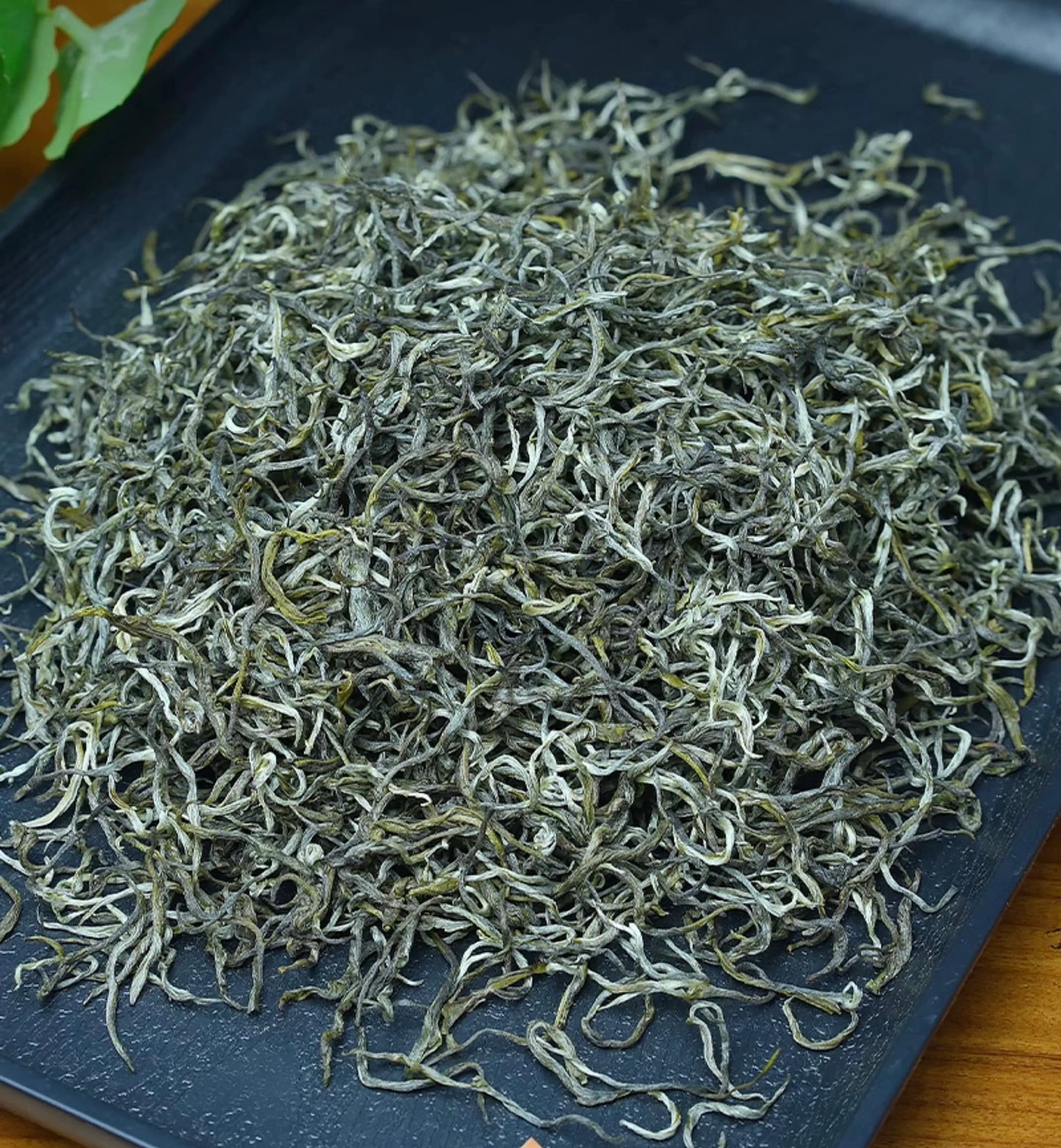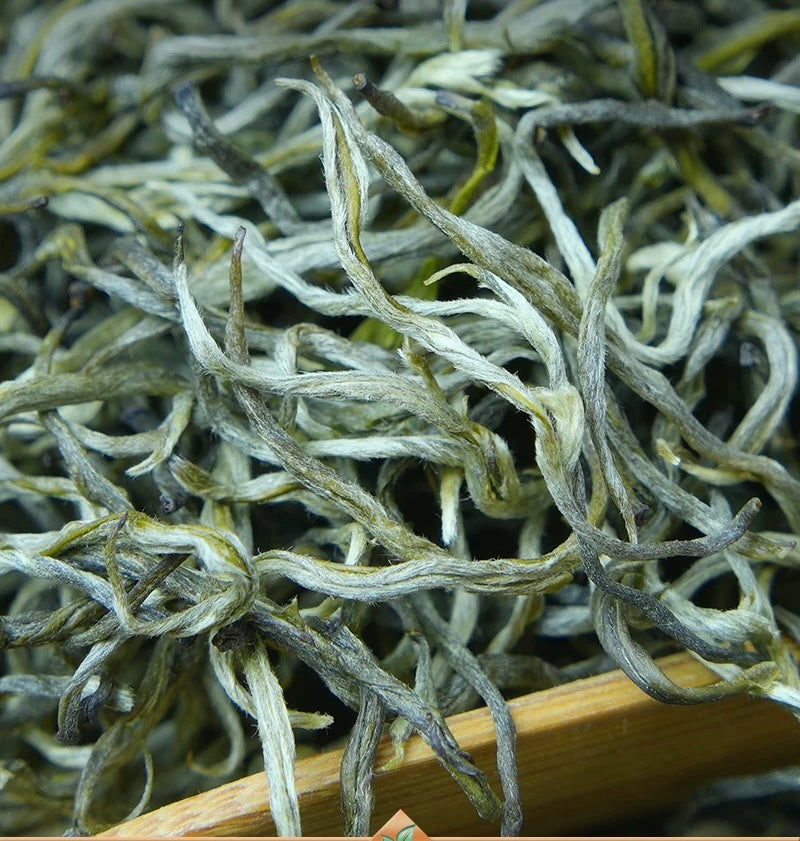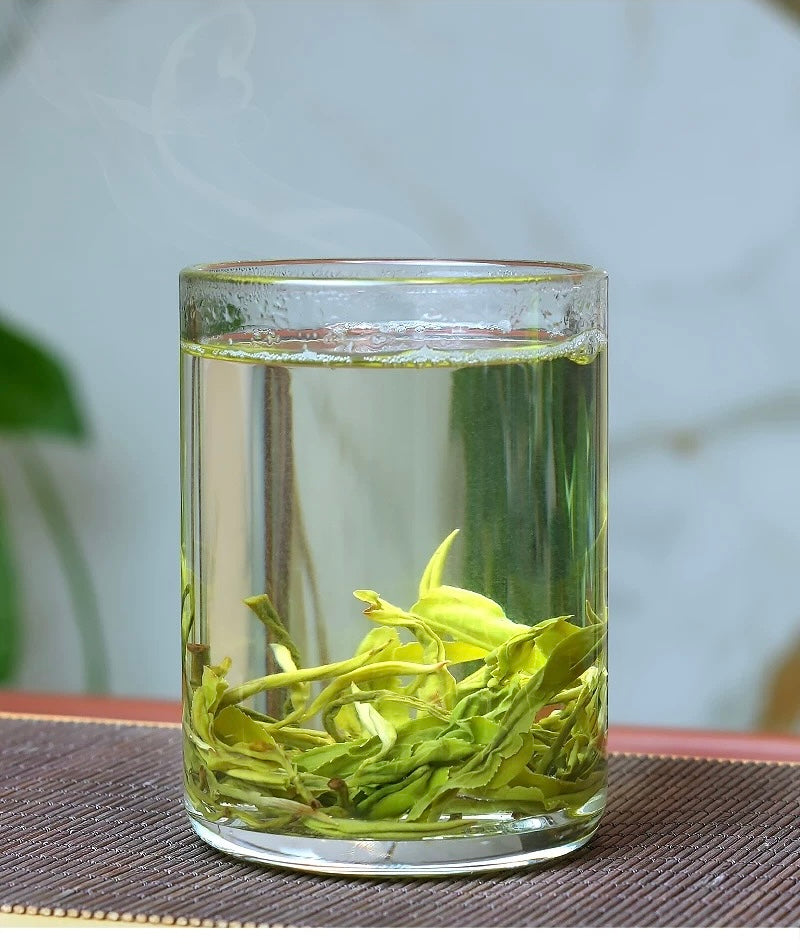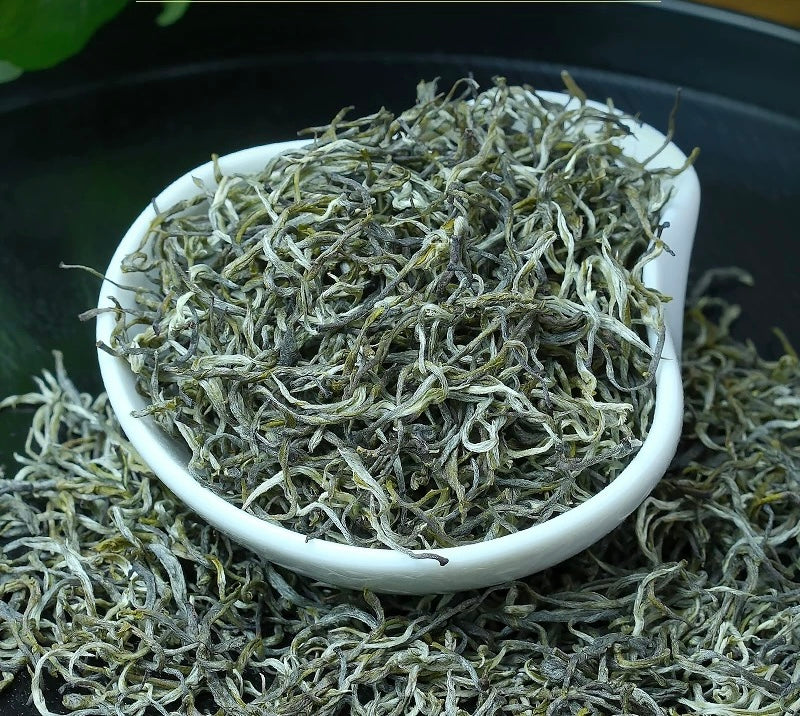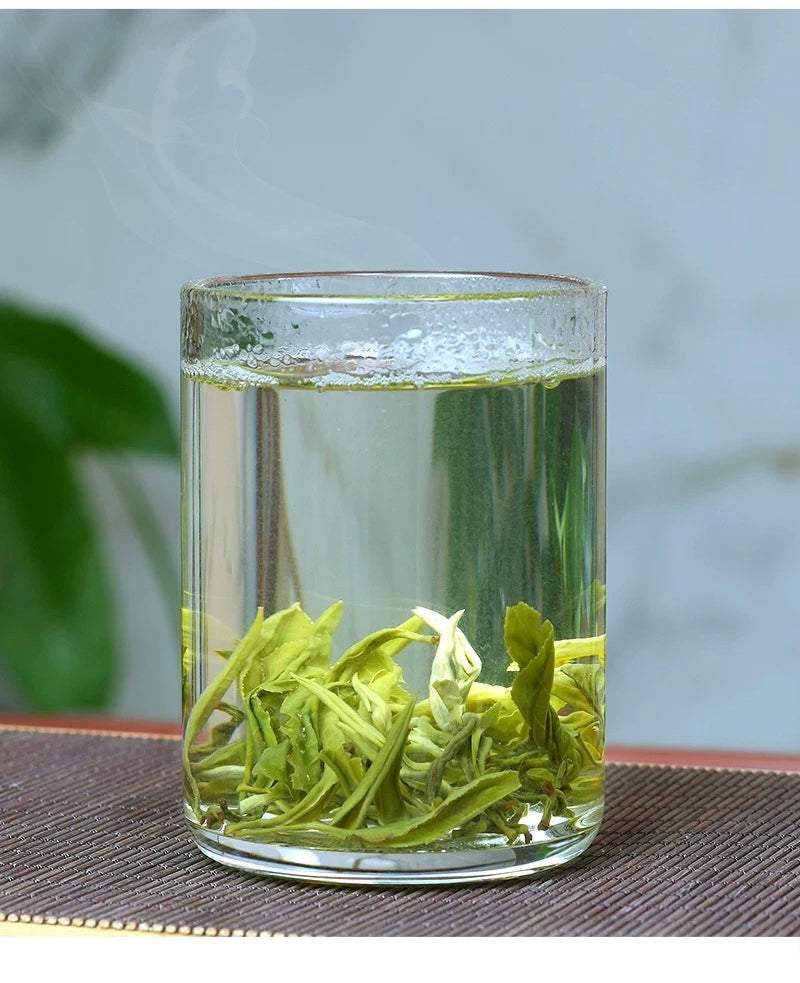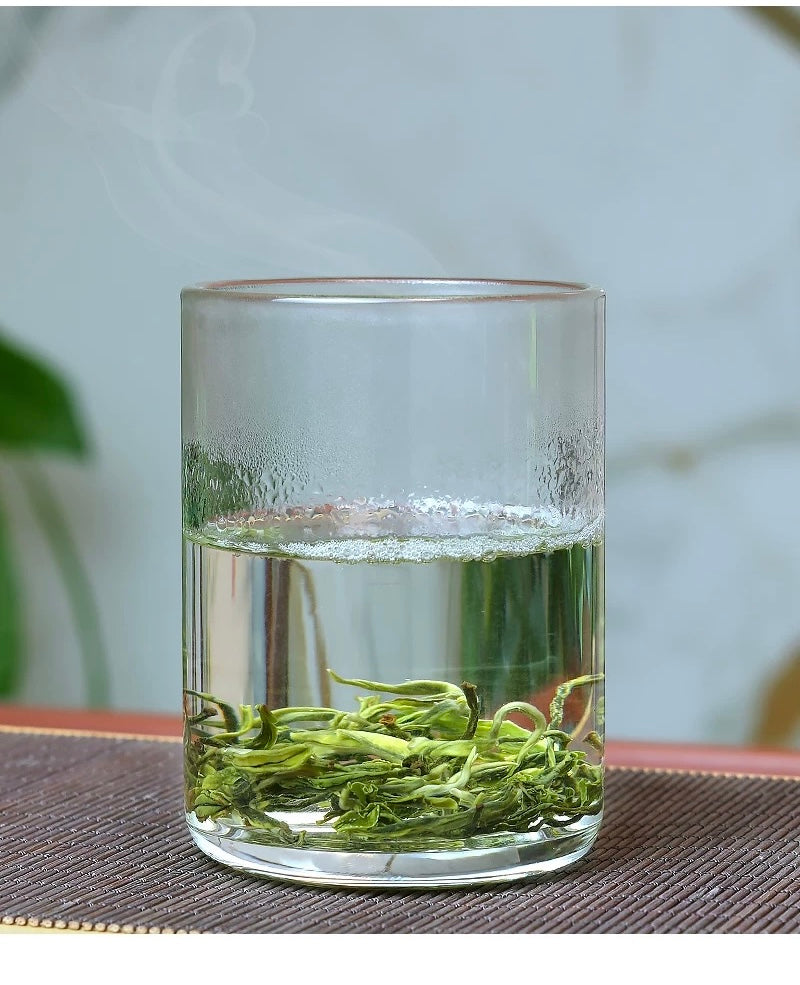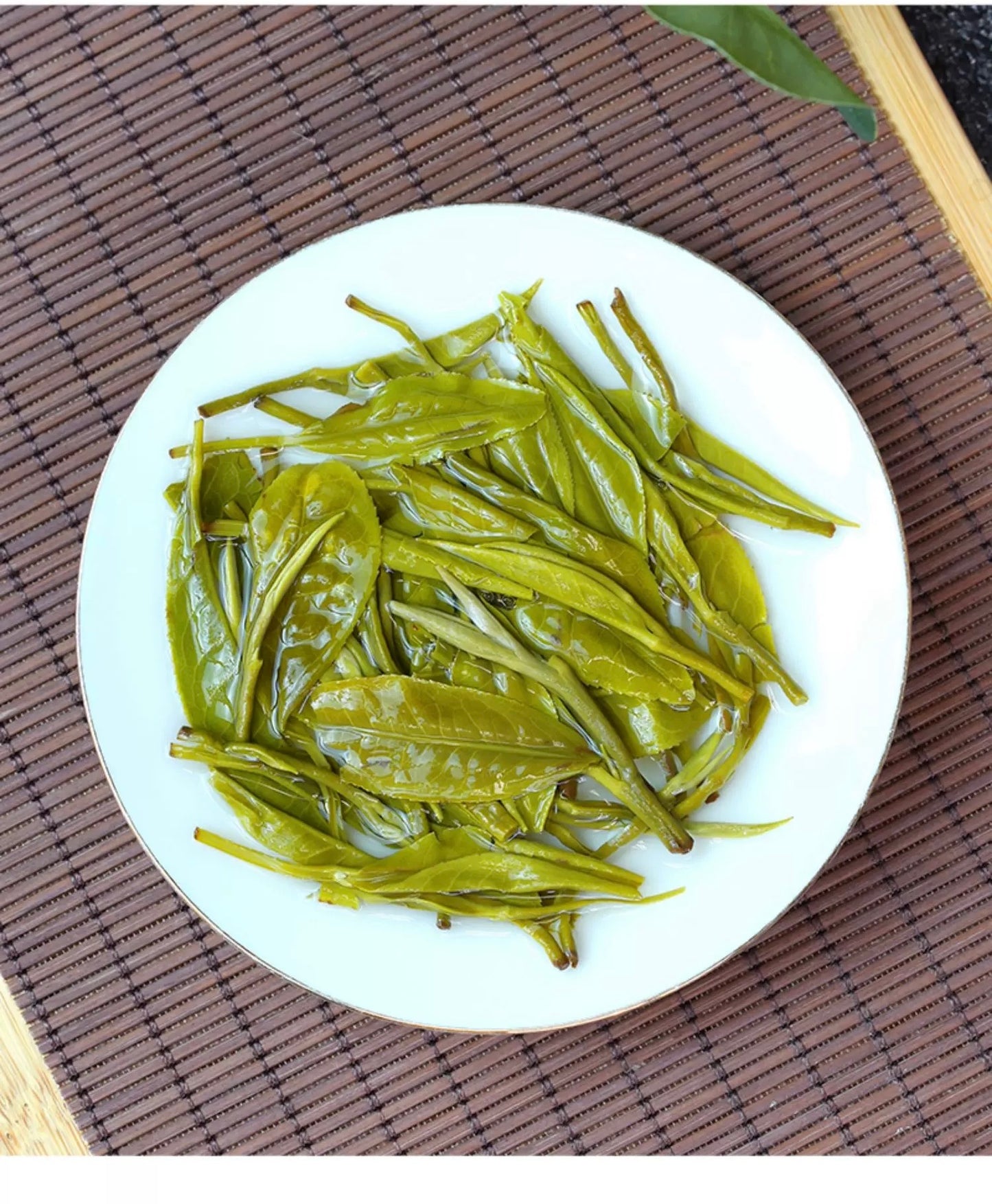YUYUN
2025 High Mountain Tea
2025 High Mountain Tea
Impossible de charger la disponibilité du service de retrait
Overview of Anhua Gaoming Township Jianfeng Spring Tips Tea
1. Origin
- Location: Gaoming Township, Anhua County, Hunan Province, China.
2. Season
- Type: Spring tea.
- Harvest Date: April 11, 2025.
3. Dry Leaves
- Appearance: Single bud with 1–2 leaves, covered with fine white hairs.
4. Aroma
- Notes: Roasted soybean and chestnut aromas, with subtle floral undertones.
5. Liquor Color
- Description: Pale yellow-green.
6. Taste
- Profile: Refreshing and smooth texture, prominent roasted soybean fragrance, rich and full-bodied finish.
- Brewing: Withstands multiple Gongfu-style infusions.
7. Tea Garden
- Name: Jianfeng Tea Garden.
8. Caffeine Content
- Level: Low caffeine (contains less than 10% of the caffeine in a standard cup of coffee).
9. Storage
- Method: Seal in opaque packaging; store refrigerated.
10. Shelf Life
- Duration: 18 months.
Anhua Green Tea, celebrated for its millennium-old tribute tea heritage, distinctive pine needle-like shape, and refreshing taste, embodies a harmonious blend of traditional craftsmanship, ecological value, and health benefits—making it the ideal choice for hospitality toward distinguished guests.
Whenever you feel restless or anxious, Anhua Green Tea serves as the perfect beverage to soothe your mind and restore calm.
Recommended Brewing Methods
Cup Method
- Cup Type: Chinese Gongfu
- Teacup: 8.8 oz / 250 ml
- Water Temperature: 185°F / 85°C
- Tea Weight: 1.5g
- Steeping Time: 3–5 minutes
Gongfu Method
- Teapot: 3.8 oz / 110 ml (gaiwan or lidded bowl)
- Water Temperature: 185°F / 85°C
- Tea Weight: 4g
-
Steeping Schedule:
- Rinse tea (5 seconds)
- First steep (15 seconds)
- Second steep (25 seconds)
- Third steep (40 seconds)
- Fourth steep (60 seconds)
- Fifth steep (90 seconds)
- Total Infusions: 5 times (rinse + 5 steeps)
Tea Garden
Tuanyun Tea Garden is located in Anhua County. The mild climate, abundant rainfall and sunshine in the area where the tea garden is located have created perfect conditions for this exquisite ancient tea variety to be passed down to this day. Tea growers in the area are well aware of the importance of the local ecosystem to tea and are committed to protecting the local tea culture and natural environment.
 Tea Grower
Tea Grower
The residents here have been engaged in the tea industry for generations, committed to providing high-quality tea for tea lovers and to producing increasingly natural, safe and healthy tea drinks. When asked about his feelings about tea culture, he told us: "Tea culture is a concept, and people in different regions have different understandings of it. Although it is complicated, one thing is certain: just like managing any other business, tea culture also needs to be managed in order to keep up with the rapid development of modern society."
Origin
Anhua tea culture: Thousand-year tribute tea inheritance (tribute tea was set up in Tang and Song dynasties, and the "Four Protection Tribute Tea" in the Ming Dynasty was famous in the court and the public), black tea making skills (Qianliang Tea, Fuzhuan Tea) are listed as human intangible cultural heritage, and the ancient Tea Horse Road (from the "Tea Horse Department" in the Song Dynasty to the Wanli Tea Road in the Ming and Qing Dynasties) witnessed the integration of ethnic trade. Meishan culture permeates tea customs (pounded tea, tea pavilion ancient road), modern tea tourism integration (360,000 acres of tea gardens linked to the ancient Tea Horse Road and Yuntaishan Scenic Area), intangible cultural heritage revitalization ("The World Tea Road" live-action drama, moraine teaware cultural creation), technology empowerment (smart tea gardens, e-commerce live broadcasts), annual output value exceeds 20 billion, driving 100,000 people out of poverty, and becoming a model of rural revitalization.
